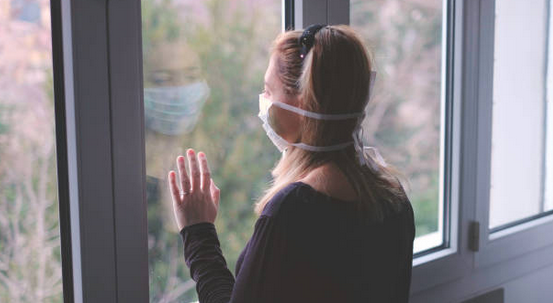Healthtrends report that more Midwest States have complained about depression and anxiety during the pandemic. This worries, stress, and fear is a natural reaction during the outbreak. It has been so long since a century ago that we face such a high-rate of the global health crisis, which is why it feels odd and uneasy about having it in the fascinating technology-driven world. These experiences, as normal as it seems, need to be reduced to increase our resilience facing the virus.
There are some symptoms to indicate the anxious feeling about the pandemic, even if we all react differently to the pressure. It can be frequent stress, helplessness and fear feeling, withdrawal from the activities you like, sleep deprivation, desperation, anger, resentment, frustration, sadness, or grief. In this respect, recognizing stress is an excellent start for reducing your anxiety levels and controlling your well-being by taking precautions. Re-evaluate these feelings without trying too hard, because what you feel is part of a reaction to this particular circumstance. It should make us feel scared, so we know how to act and keep us saved. If it turns into fear, it can induce any other unhelpful actions to us.
Focus on Truth
Getting more knowledge and information about Coronavirus might be a good step to take care of ourselves. However, it is vital to rely on the facts so that it can minimize your fear. Only use credible sources to avoid the anxiety that misinformation can cause. Seeing events in this way will help us deal with threats. When you know the facts, you can act to save yourself and regain control. Visit a useful website for Coronavirus, such as WHO, CDC, or NHS.
Break-up with Your Device
 Although it is useful to update the information, the Coronavirus news can shorten the feeling of excitement. Keep yourself informed, but it would be best if you limited your Coronavirus reading time to once or twice within a day. Manage your time by breaking-up with your devices from turning off alarms, limiting program usage time, and turning off the gadgets while in the bedroom. Make a break from the news for a day or two, and instead, dedicate that time to something that energizes you, like taking a walk in nature, doing sports and exercise, or playing games.
Although it is useful to update the information, the Coronavirus news can shorten the feeling of excitement. Keep yourself informed, but it would be best if you limited your Coronavirus reading time to once or twice within a day. Manage your time by breaking-up with your devices from turning off alarms, limiting program usage time, and turning off the gadgets while in the bedroom. Make a break from the news for a day or two, and instead, dedicate that time to something that energizes you, like taking a walk in nature, doing sports and exercise, or playing games.
Set the Focus Control
The melancholy of what cannot be done can fuel fear and tension. If you can set the focus of your control, you can act better. You can start to identify it by answering “yes” or “no” to other people’s requests, preparing supplies, or talking to members of your circle and loved ones.
Have a Quality Sleep
Getting enough sleep can help you face your fears, even when they are apparent. If you keep wondering about your day before sleeping, the feelings will probably get worse. Have a quality sleep by going to bed at the same time of night. If you take the night shifts, thus impossible to do so, create a regular pattern that makes your body and mind at ease. It can be a bath, a relaxation system, or a tea to sleep. Also, remember to put away all your gadget from the bedroom for a better sleeping quality.
Stay in Touch
 Stay in touch with your closed circle and loved one. It is easy to lock yourself out from others when you feel anxious, but it would be best to communicate with others about how you think and stay connected virtually in case of clues about your changing condition. Remember that it can be useful to talk about anything that is out of the Coronavirus topic.
Stay in touch with your closed circle and loved one. It is easy to lock yourself out from others when you feel anxious, but it would be best to communicate with others about how you think and stay connected virtually in case of clues about your changing condition. Remember that it can be useful to talk about anything that is out of the Coronavirus topic.
As soon as you feel tension and stress, instead of blaming yourself, you assume that things are hard and can cause feelings. Keep a diary and reflect on what you have written. As you hear your inner critic, talk to it using a comforting phrase that it is okay to feel angry or failure is a human being nature.

